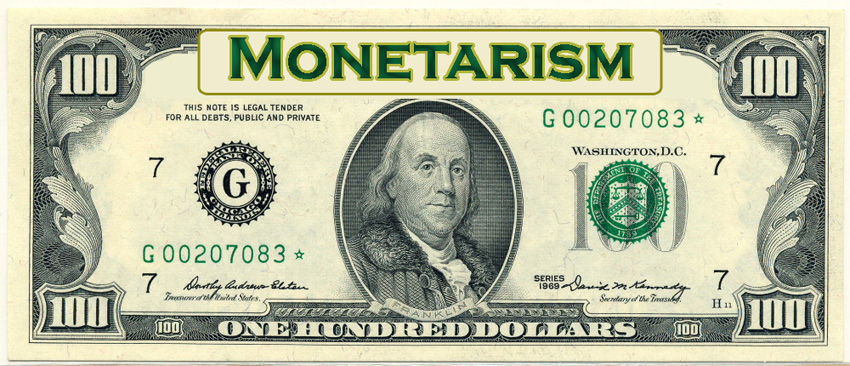
"[Recessions] are essentially a result of a supply of money that is too small, and to that extent are monetary phenomena...Complaints about excessive habits of saving are in such circumstances calculated to confuse the mind of the public and to distract attention from the shortcomings of monetary policy."
(Gustav Cassel, Theory of Social Economy, 1918: p.445).
"The present writer is in agreement with the conclusion that the cause of the Great Depression must be sought elsewhere than in savings-investment relationships...[T]he emphasis of contemporary economists on these relationships has been misplaced, because a far more potent factor of economic instability in recent years, namely, erratic variation in the quantity of money, has been ignored."
(Clark Warburton, "The Misplaced Emphasis", Journal of Business, 1946: p.284)
"At last, I have discovered the cause of Christmas!"
(attributed to Nicholas Kaldor, after noting that the money supply surges in December and declines in January)
"Another difference between Milton and myself is that everything reminds Milton of the money supply. Well, everything reminds me of sex, but I keep it out of the paper."
(attributed to Robert M. Solow)
"[Monetarism] has benefited much from Keynes' work...If Keynes were alive today, he would no doubt be at the forefront of the counter-revolution. You must never judge a master by his disciples."
(Milton Friedman, Counter-Revolution in Monetary Theory, 1970: p.8)
"I have never found the familiar statement that inflation is everywhere and at all times a monetary phenomenon to be a very edifying one: for the price level is the inverse of the purchasing power of money, so that by the same token one can say that the price of potatoes is a potato phenomenon."
(Don Patinkin, "Some Observations on the Inflationary Process", in Flanders and Razin, editors, Developments in an Inflationary World, 1981: p.31)
"The first and most important lesson that history teaches about what monetary policy can do -- and it is a lesson of the most profound importance -- is that monetary policy can prevent money itself from being a major source of economic disturbance."
(Milton Friedman, "The Role of Monetary Policy", American Economic Review, 1968: p.12)
"I think I had best begin by making my own position clear - I regard "monetarism" as a terrible curse, a visitation of evil spirits, with particular unfortunate, one could almost say devastating consequences on our own country, Britain."
(Nicholas Kaldor, Origins of the New Monetarism, 1981: p.1)
"[Milton Friedman] is quite talented at outraging his intellectual opponents, who have accordingly devoted much energy and knowledge to advertising his work. His only flaw as a debater, in my opinion, is that often his victories are temporary; the defeated adversary will slink off muttering "I'll think of a reply to his argument in a few days.""
(George J. Stigler, Memoirs of Unregulated Economist, 1988: p.154)
All rights reserved, Gonšalo L. Fonseca